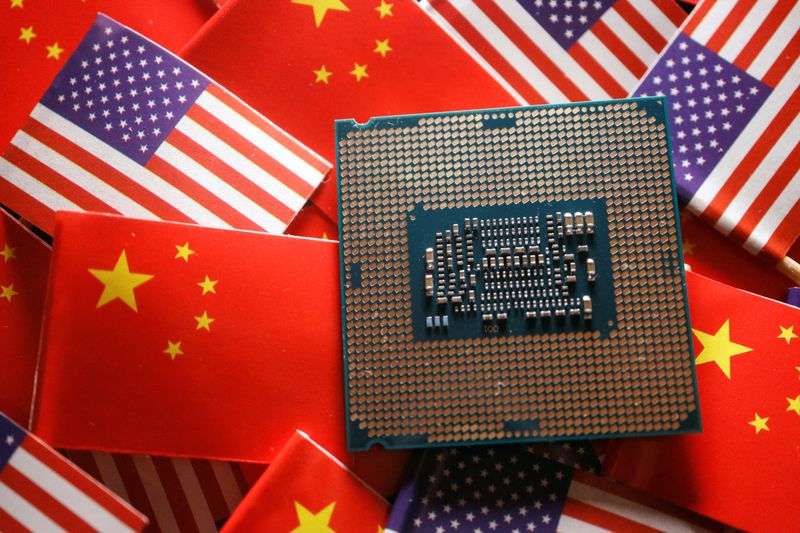China blocks use of Intel and AMD chips in government computers, FT reports

A central processing unit (CPU) semiconductor chip is displayed among flags of China and U.S., in this illustration picture taken February 17, 2023. REUTERS/Florence Lo/Illustration/File photo
INTC
+0.35%
Add to/Remove from Watchlist
Add to Watchlist
Add Position
Position added successfully to:
Please name your holdings portfolio
Type:
BUY
SELL
Date:
Amount:
Price
Point Value:
Leverage:
1:1
1:10
1:25
1:50
1:100
1:200
1:400
1:500
1:1000
Commission:
Create New Watchlist
Create
Create a new holdings portfolio
Add
Create
+ Add another position
Close
AMD
+0.54%
Add to/Remove from Watchlist
Add to Watchlist
Add Position
Position added successfully to:
Please name your holdings portfolio
Type:
BUY
SELL
Date:
Amount:
Price
Point Value:
Leverage:
1:1
1:10
1:25
1:50
1:100
1:200
1:400
1:500
1:1000
Commission:
Create New Watchlist
Create
Create a new holdings portfolio
Add
Create
+ Add another position
Close
(Reuters) -China has introduced guidelines to phase out U.S. microprocessors from Intel (NASDAQ:INTC) and AMD (NASDAQ:AMD) from government personal computers and servers, the Financial Times reported on Sunday.
The procurement guidance also seeks to sideline Microsoft (NASDAQ:MSFT)’s Windows operating system and foreign-made database software in favour of domestic options, the report said.
Government agencies above the township level have been told to include criteria requiring “safe and reliable” processors and operating systems when making purchases, the newspaper said.
China’s industry ministry in late December issued a statement with three separate lists of CPUs, operating systems and centralised database deemed “safe and reliable” for three years after the publication date, all from Chinese companies, Reuters checks showed.
The State Council Information Office, which handles media queries for the council, China’s cabinet, did not immediately respond to a faxed request for comment.
Intel and AMD did not immediately respond to Reuters request for comment.
The U.S. has been aiming to boost domestic semiconductor output and reduce reliance on China and Taiwan with the Biden administration’s 2022 CHIPS and Science Act.
It is designed to bolster U.S. semiconductors and contains financial aid for domestic production with subsidies for production of advanced chips.








